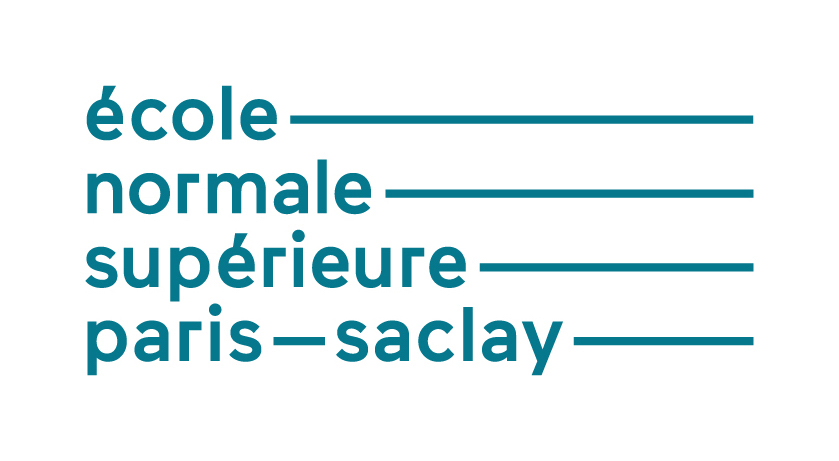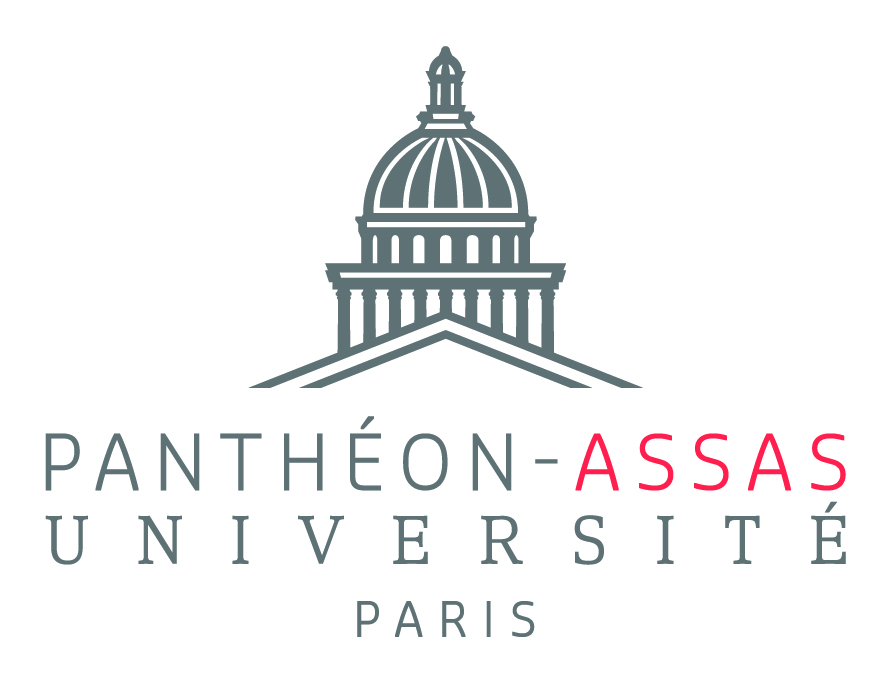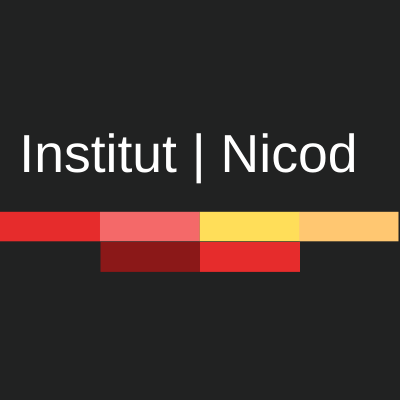That was the ..
First Paris WorkshopJune 15-16, 2023Applications of Game Theory in the Study of LanguageSignaling games have been extensively studied by game theorists — be it in the form of costly signaling, cheap talk, Bayesian persuasion, etc. In exploring these models, game theorists and economists frequently touch on questions traditionally treated in linguistics, and they have, from time to time, also ventured into linguistic interpretations of these models. In linguistics, more recently, researchers have turned to game theory and modeling frameworks bearing similarities to methods used in game theory (such as the Rational Speech Act model) to study questions in semantics and pragmatics. The aim of this workshop is to enhance the exchange between these two research communities. With contributions by: Andreas Blume *
Heather Burnett *
Milica Denić *
Paul Égré *
Françoise Forges *
Sidartha Gordon *
Michael Franke *
Itzhak Gilboa *
Jonathan Ginzburg *
Christoph Kuzmics *
Christina Pawlowitsch *
Herakles Polemarchakis *
Friederike Reichel *
Daniel Rothschild *
Gerhard Schaden *
Joel Sobel *
Benjamin Spector *
Tristan Tomala *
Daniel Toneian Program Committee:
Andreas Blume |

Image: © Christian Katt, "underwater." |
Abstracts
Andreas Blume
(University of Arizona)
"Language in Sender-Receiver Games: Theory and Experiments”
Heather Burnett and Gabriel Thiberge
(CNRS, Laboratoire de Linguistique Formelle, Paris 7)
"Gaming in Theory and Practice: Using Video Games to Study Strategic Language Use"
Abstract: In this talk we present data from a video game study that empirically tests a current game-theoretic framework linking language and human behavior, by assessing the relationship between sociolinguistic variation and strategic action. We manipulated the linguistic persona of two non-playable characters (NPCs) the player meets (the NPCs speak either "standard" French or "vernacular" French, which are both linked to different prestige values). Then, players had to call one of these NPCs to help them fulfill a quest in either prestige- or solidarity-oriented contexts. We find evidence that strategic choices are indeed influenced by the linguistic characteristics of a speaker, in a more fine-grained approach than with other, more explicit experimental paradigms traditionally used in sociolinguistics (ie. the matched-guise task).
public version of the video-game
Milica Denić
(Tel-Aviv University, Computational Linguistics Lab)
"Indefinite Pronouns Optimize the Simplicity/Informativeness Trade-Off"
(joint with Shane Steinert-Threlkeld, Jakub Szymanik)
Abstract: The vocabulary of human languages has been argued to support efficient communication by optimizing the trade-off between simplicity and informativeness. The argument has been originally based on cross-linguistic analyses of vocabulary in semantic domains of content words, such as kinship, color, and number terms. The present work applies this analysis to a category of function words: indefinite pronouns (e.g., someone, anyone, no one). We build on previous work to establish the meaning space and featural make-up for indefinite pronouns, and show that indefinite pronoun systems across languages optimize the simplicity/informativeness trade-off. This demonstrates that pressures for efficient communication shape both content and function word categories. In doing so, our work aligns with several concurrent studies exploring the simplicity/informativeness trade-off in functional vocabulary. Importantly, we further argue that the trade-off may explain some of the universal properties of indefinite pronouns, thus reducing the explanatory load for linguistic theories.
Article
Paul Egré
(CNRS, Institut Jean Nicod, Paris) and Benjamin Spector (CNRS, Institut Jean Nicod, Paris)
"Comparing Game-Theoretic and Semantic Treatments of Vague Meaning"
Françoise Forges
(University Paris Dauphine)
"Neologisms in Cheap-Talk Games"
(based on joint work with Stéphan Sémirat, Université Grenoble Alpes)
Abstract: We study pure perfect Bayesian equilibria (PBE) in a class of cheap talk games, namely, sender-receiver games with finitely many types for the sender. Such equilibria are characterized by incentive compatible (IC) partitions of the sender’s types. The notion of neologism-proof equilibrium is easily described in this model. There is typically a plethora of pure perfect Bayesian equilibria (PBE) in cheap talk games. Many refinements of PBE are conceived for signaling games and have no selection power in this framework. By contrast, neologism-proof equilibrium is tailored to cheap talk games but is so demanding that it often does not exist, even in well-behaved games. We show that, in the case of ordered types, real-valued decisions and well-behaved utility functions (namely, strictly concave, single-peaked, single-crossing and with an upward bias for the sender), a forward-neologism-proof PBE always exists. This is a variant of neologism-proof PBE in which neologisms are required to be incentive compatible. The proof is based on a better response dynamics.
Itzhak Gilboa
(Tel-Aviv University, HEC Paris)
"Rationality and the Bayesian Paradigm"
Abstract: It is argued that, contrary to a rather prevalent view within economic theory, rationality does not imply Bayesianism. We start by defining these terms and justifying the choice of these definitions, proceed to survey the main justification for this prevalent view, and conclude by highlighting its weaknesses.
Jonathan Ginzburg
(Laboratoire de Linguistique Formelle, University Paris 7)
"Actual and Possible Language Games"
Michael Franke
(University of Tübingen)
"Cognitively Plausible Models of
Context Representation and Pragmatic Reasoning"
Abstract: Standard models in decision and game-theory operate on representations of a decision situation with given contingencies (world states, actions etc.). Many real-world communicative situations, on the other hand, are characterized better as an open-ended search for the best explanation of a speaker’s utterance. This talk explores ways in which the virtues of rational analysis (formal precision, conceptual clarity) can be retained, while also allowing for open-ended search through an -in principle- unknown search space. Tentatively, it is explored how Large Language Models could be used in a neuro-symbolic architectures to combine probabilistic reasoning with on-the-fly generation of contingencies.
Sidartha Gordon
(Dauphine University)
"Effective Communication in Cheap-Talk Games"
(joint with Navin Kartik, Melody Pei-yu Lo, Wojciech Olszewski, and Joel Sobel)
Abstract: This paper presents arguments based on weak dominance and learning for selecting informative equilibria in a model of cheap-talk communication where players must use monotonic strategies. Under a standard regularity condition, only
one equilibrium survives iterated deletion of interim dominated strategies. Under
the same condition, we establish that best-response dynamics converges to this
outcome.
Working Paper
Christoph Kuzmics
(University of Graz)
"Robust Equilibria in Binary Cheap-Talk Games"
(based on joint work with Jan-Henrik Steg, Elshan Garashli, and Michael Greinecker)
Abstract:
We study the robustness of equilibria in cheap-talk communication games with transparent motives and a binary state space. While most equilibria are not robust against relaxing the assumption of state-independent sender preferences, and many equilibrium sender payoffs cannot be attained in a robust equilibrium, there is always a robust equilibrium among all sender-optimal equilibria. This strengthens the empirical plausibility of such equilibria.
Christina Pawlowitsch
(University Paris-Panthéon-Assas)
"Implicatures in Bayesian Dialogues"
Abstract:
In a Bayesian dialogue (Bacharach 1979, Geanakoplos and Polemarchakis 1982) two individuals report their Bayesian updated belief about a certain event back and forth, at each step taking into account the additional information contained in the updated belief announced by the other at the previous step. Such a process - which operates through a reduction of the set of possible states of the world - converges to a commonly known posterior belief, which can be interpreted as a dynamic foundation for Aumann’s (1976) "agreement" result. In this talk, I will explore this theory as a modeling framework for some phenomena studied in linguistics, notably conversational implicatures (Grice 1975).
A related paper: "Strategic Manipulation in Bayesian Dialogues" (Pawlowitsch, 2021, Synthese 199, 11279–11303)
Herakles Polemarchakis
(University of Warwick)
"Rational Dialogues"
(based on joint work with John Geanakoplos)
Abstract: Any finite conversation can be rationalized.
Friederike Reichel
(Ludwig-Maximilians Universität München)
"The Coarseness of Moral Language"
Abstract: We study how the coarseness of moral language affects moral behavior. The conceptual inflation hypothesis and our social signaling model suggest that broadening a negative moral category can have unintended consequences. As a reaction to the new, coarsened moral category, some people may take a less moral action than previously, thereby diluting the category’s meaning. We call this behavioral pattern the diluting effect. Data from an online experiment show that the diluting effect exists. Depending on the shape of the welfare function, the diluting effect makes a narrow negative moral category preferable to a broad negative moral category.
Daniel Rothschild
(University College London)
"Reflections on Applying Game Theory to Language"
Abstract:
I discuss efforts spanning the last few decades to apply ideas and techniques from game theory to linguistics pragmatics. I argue that the biggest problem facing this approach is the difficulty in encoding the game-theoretic significance of conventional linguistic meaning. I review some of the pros and cons of different ways of overcoming this difficulty that have been developed in the economics and philosophy literature.
Gerhard Schaden (University of Lille, Laboratoire Savoirs, Textes, Langages)
"Cost in Language: Cheap Talk and Free Speech"
Abstract: This talk addresses the issue of cost in natural language and its interpretation. Cost is a crucial ingredient in pragmatic theories of interpretation, and also in evolutionary models of the emergence of natural language in our species. However, it is not always that clear (beyond the intuition that some message is less/more costly than an alternative) what cost is. This talk tries to provide a classification of types of cost linked to the use of language, and to see whether notions like Veblen goods have a correspondent in communication.
Joel Sobel
(University of California, San Diego)
"Using Game Theory to Study Language"
Abstract:
This talk presents an idiosyncratic overview of problems of interest to game theorists and linguists.
I focus on three elements: common interest, complexity, and unnatural language. Although economic models focus on conflict, interesting questions remain even in common-interest games.
Fundamental pragmatic questions arise in common-interest settings. Natural language faces complexity constraints. Speakers and audiences have limited abilities and attention.
The study of communication in settings that abstract from features of natural language (for example, grammar and syntax) can provide useful insight about language.
I illustrate these observations with observations about implicatures and organizational codes.
Tristan Tomala (HEC Paris)
"Sender-Receiver Problems over Limited Communication Channels" (based on joint works with Maël Le Treust)
Abstract: We consider sender-receiver environments where the sender is informed of states and the receiver chooses actions. There is a communication channel between them consisting of sets of input/output messages and a fixed transition probability. The sender reaches out to the receiver through the channel which limits communication in two ways: the number of available messages might be small, messages might be noisy. We will study various scenarios: common interests, commitment for the sender, commitment for the receiver, mediation, monetary transferts. In each case, the goal is to characterize the joint distributions which can be implemented by communication over the channel, given the incentives of the players and their commitment power. We consider both one-shot problems and series of i.i.d. problems.
Daniel Toneian
(University of Vienna)
"Statistical Agreeing"
Abstract:
Aumann's first formulation of the notion of common knowledge in a set-theoretical framework led to the development of an active field of study. This talk introduces a version of knowledge and common knowledge which naturally extends the original definitions and allows for and quantifies uncertainty in knowledge. Some of the most important theorems on common knowledge are reformulated for this new framework and implications and applications are discussed.






